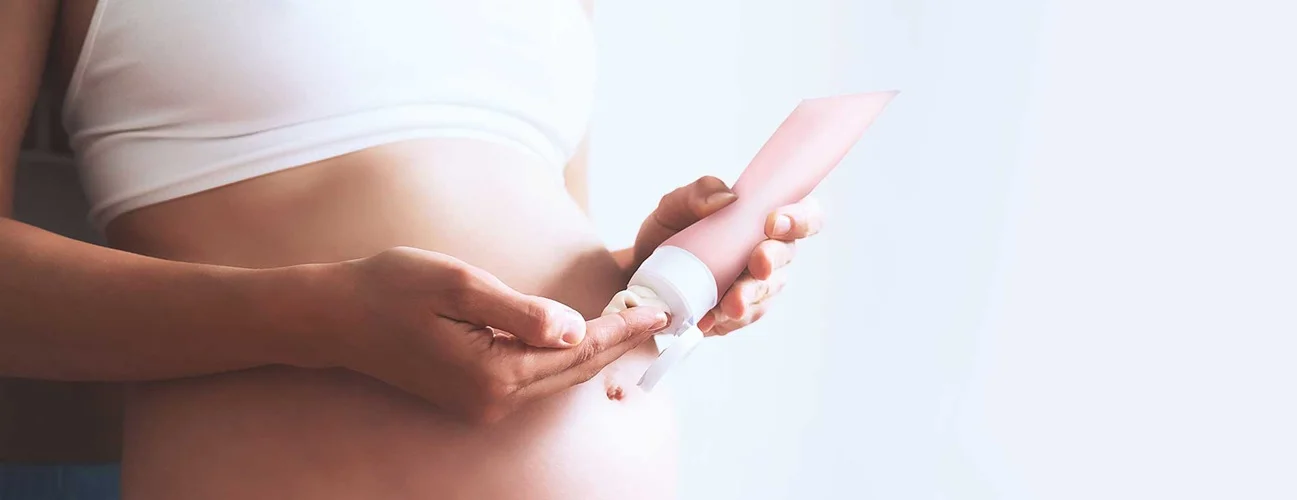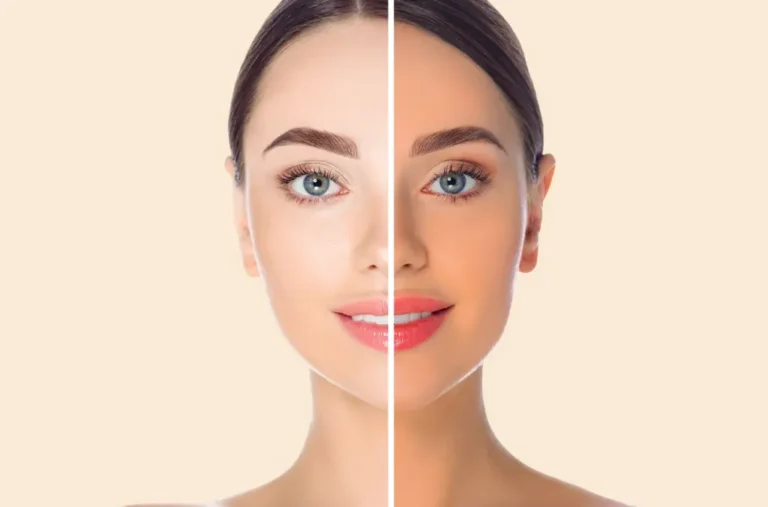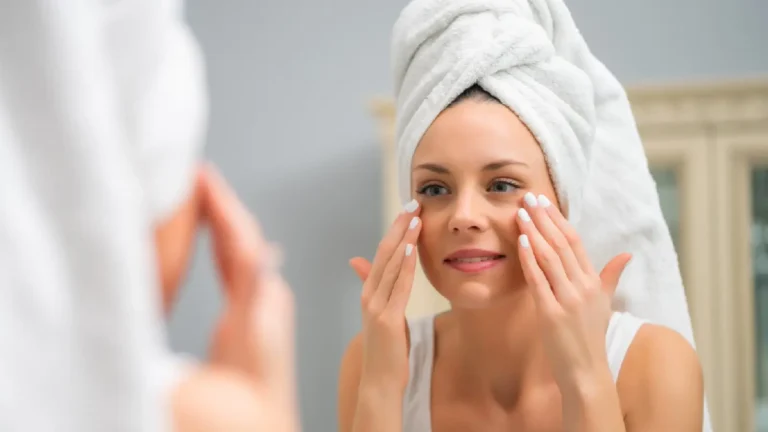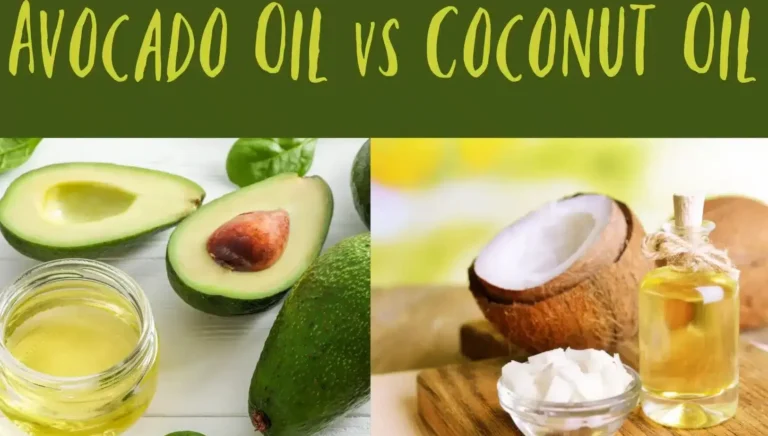Mommy Glow-Up: Mastering Korean Skincare Safe for Pregnancy
Pregnancy is a wonderful time for many women, but it can also bring some challenges for your skin. Hormonal changes, stretching skin, and increased sensitivity can cause various skin issues, such as dryness, redness, breakouts, and hyperpigmentation. Fortunately, there are many Korean skincare products that are safe and effective for pregnant women, as they contain natural and gentle ingredients that nourish and protect your skin. Let’s explore why skincare during this special time is crucial and delve into specific skin concerns you might encounter. Discover the secrets to a glowing, healthy complexion with our guide to mastering safe Korean skincare during pregnancy.
Korean Skincare Safe for Pregnancy: Why Is It So Important?
Entering motherhood marks a profound change not just internally but on the external canvas of your skin as well. The rollercoaster of hormones during pregnancy brings about an array of skin challenges, underscoring the necessity of a reliable and gentle skincare routine. Opting for the acclaimed gentleness of Korean skincare becomes pivotal during this transformative period, guaranteeing a nurturing touch that safeguards your skin with meticulous care.
How Pregnancy Can Affect Your Skin and How to Deal With It
Pregnancy is a time of joy and anticipation, but it can also bring some changes to your skin that may not be so welcome. Hormones, blood flow, and stretching skin can all contribute to various skin issues, such as itchiness, dryness, breakouts, and discoloration. While most of these skin concerns are harmless and temporary, they can still affect your self-esteem and comfort. In this article, we will explain some of the most common skin concerns during pregnancy and how you can manage them with simple tips and tricks:
1. Itchy Skin
Itchy skin is one of the most frequent complaints of pregnant women, affecting up to 20% of them. It can be caused by dry skin, hormonal changes, or stretching skin. It can also be a sign of a more serious condition, such as intrahepatic cholestasis of pregnancy (ICP), which is a liver disorder that can harm your baby. If you have severe or persistent itching, especially on your palms and soles, you should contact your doctor.
To relieve itchy skin, you can try the following:
- Use gentle and fragrance-free moisturizers and cleansers.
- Avoid hot showers and baths, and pat your skin dry instead of rubbing.
- Wear loose and breathable clothing made of natural fabrics.
- Apply cold compresses or oatmeal baths to soothe your skin.
- Avoid scratching, as it can damage your skin and cause infections.
2. Stretch Marks
Stretch marks are narrow streaks or lines that appear on your skin when it stretches or shrinks quickly. They are very common in pregnancy, affecting up to 90% of women. They usually appear on your abdomen, breasts, hips, thighs, and buttocks. They are not harmful, but they can affect your appearance and confidence.
Stretch marks are caused by the tearing of the dermis, the middle layer of your skin, due to rapid growth or weight gain. They are influenced by genetics, hormones, and skin type. They usually start as red or purple marks and then fade to white or silver over time.
There is no proven way to prevent or get rid of stretch marks completely, but you can try the following to reduce their appearance and severity:
- Keep your skin hydrated and elastic by drinking plenty of water and using moisturizers.
- Eat a balanced diet rich in vitamins, minerals, and antioxidants that support your skin’s health.
- Avoid sudden weight gain or loss, and gain weight gradually and steadily during pregnancy.
- Massage your skin with oils or creams that contain ingredients such as vitamin E, cocoa butter, or shea butter.
- Use topical products that contain retinoids, alpha-hydroxy acids, or peptides, but only after consulting your doctor, as some of them may not be safe during pregnancy.
- Consider cosmetic treatments, such as laser therapy, microdermabrasion, or microneedling, but only after your pregnancy and breastfeeding and with the advice of a dermatologist.
3. Acne
Acne is a skin condition that causes pimples, blackheads, whiteheads, and inflammation on your face, chest, back, or shoulders. It is caused by the excess production of sebum, an oily substance that clogs your pores and allows bacteria to grow. Acne can be triggered or worsened by hormonal changes, stress, diet, or medications.
Acne is common in pregnancy, especially in the first trimester, when your hormones are fluctuating. It can affect up to 50% of pregnant women. It usually improves or clears up by the second or third trimester, or after delivery.
To treat acne during pregnancy, you can try the following:
- Wash your face twice a day with a mild and oil-free cleanser.
- Use non-comedogenic and hypoallergenic products that do not clog your pores or irritate your skin.
- Avoid touching, picking, or squeezing your pimples, as it can cause scarring and infection.
- Use over-the-counter products that contain ingredients such as benzoyl peroxide, salicylic acid, or glycolic acid, but only in small amounts and with caution, as some of them may not be safe during pregnancy.
- Consult your doctor before using any prescription medications, such as antibiotics, retinoids, or oral contraceptives, as some of them may be harmful to your baby.
- Seek professional help from a dermatologist if your acne is severe or does not respond to home remedies.
4. Melasma
Melasma is a skin condition that causes brown or gray patches on your face, especially on your forehead, cheeks, nose, and upper lip. It is also known as chloasma, or the mask of pregnancy. It is caused by the overproduction of melanin, the pigment that gives your skin its color. Melanin production is stimulated by sun exposure and hormones such as estrogen and progesterone.
Melasma is common in pregnancy, affecting up to 70% of women. It usually appears in the second or third trimester, when your hormones are at their peak. It often fades or disappears after delivery, but it may persist or recur in some cases.
To prevent or treat melasma during pregnancy, you can try the following:
- Avoid sun exposure, especially between 10 a.m. and 4 p.m., when the sun’s rays are strongest.
- Wear sunscreen with SPF 30 or higher every day, and reapply it every two hours or after sweating or swimming
- Wear hats, sunglasses, and clothing that cover your face and protect it from the sun.
- Use gentle and non-irritating skincare products that do not contain alcohol, fragrance, or harsh chemicals.
- Use topical products that contain ingredients such as hydroquinone, azelaic acid, kojic acid, or niacinamide, but only after consulting your doctor, as some of them may not be safe during pregnancy.
- Consider cosmetic treatments, such as chemical peels, microdermabrasion, or laser therapy, but only after your pregnancy and breastfeeding and with the advice of a dermatologist.
5. Spider Veins
Spider veins are small, dilated blood vessels that appear on your skin, usually on your face, legs, or ankles. They are also known as telangiectasias. They are red, blue, or purple in color, and look like spider webs or tree branches. They are not harmful, but they can affect your appearance and confidence.
Spider veins are caused by the increased blood volume and pressure in your veins during pregnancy. They are also influenced by genetics, hormones, and weight gain. They usually appear in the second or third trimester, when your blood circulation is at its highest. They often fade or disappear after delivery, but they may persist or worsen in some cases.
To prevent or treat spider veins during pregnancy, you can try the following:
- Elevate your legs whenever possible, especially at night, to improve your blood flow and reduce swelling.
- Avoid standing or sitting for long periods of time, and move your legs frequently.
- Wear compression stockings or socks that apply gentle pressure to your legs and prevent blood from pooling in your veins.
- Exercise regularly, such as walking, swimming, or cycling, to strengthen your muscles and enhance your circulation.
- Maintain a healthy weight and avoid excessive weight gain during pregnancy.
- Consider cosmetic treatments, such as sclerotherapy or laser therapy, but only after your pregnancy and breastfeeding and with the advice of a dermatologist.
6. Sensitive Skin
Sensitive skin is skin that reacts easily to external or internal factors, such as products, temperature, stress, or hormones. It can cause symptoms such as dryness, redness, itching, burning, or stinging. During pregnancy, your skin may become more sensitive due to hormonal changes, increased blood flow, and stretching.
To soothe and protect your sensitive skin, you can try the following:
- Use gentle and fragrance-free cleansers, moisturizers, and sunscreens that do not contain alcohol, preservatives, or harsh chemicals.
- Avoid hot showers and baths, and pat your skin dry instead of rubbing.
- Wear loose and breathable clothing made of natural fabrics, such as cotton or linen.
- Avoid exposure to extreme temperatures, wind, or sun, and wear hats, sunglasses, and clothing that cover your skin.
- Test new products on a small area of your skin before using them on your face or body.
- Consult your doctor if your skin is very irritated, inflamed, or infected, or if you have signs of an allergic reaction, such as hives, swelling, or difficulty breathing.
7. Dark Spots
Dark spots are areas of increased pigmentation on your skin that are caused by the overproduction of melanin, the substance that gives your skin its color. Melanin production is stimulated by sun exposure and hormones such as estrogen and progesterone. During pregnancy, your hormones are fluctuating, and your skin may produce more melanin than usual. This can result in dark spots on your face, especially on your forehead, cheeks, nose, and upper lip. This condition is also known as melasma or chloasma, and it affects up to 70% of pregnant women.
Dark spots usually fade or disappear after delivery, but they may persist or recur in some cases. To prevent or treat dark spots during pregnancy, you can try the following:
- Avoid sun exposure, especially between 10 a.m. and 4 p.m., when the sun’s rays are strongest.
- Wear sunscreen with SPF 30 or higher every day, and reapply it every two hours or after sweating or swimming.
- Wear hats, sunglasses, and clothing that cover your face and protect it from the sun.
- Use gentle and non-irritating skincare products that do not contain alcohol, fragrance, or harsh chemicals.
- Use topical products that contain ingredients such as hydroquinone, azelaic acid, kojic acid, or niacinamide, but only after consulting your doctor, as some of them may not be safe during pregnancy.
- Consider cosmetic treatments, such as chemical peels, microdermabrasion, or laser therapy, but only after your pregnancy and breastfeeding and with the advice of a dermatologist.
8. PUPPP Rash
PUPPP stands for pruritic urticarial papules and plaques of pregnancy, which is a skin condition that causes itchy, red bumps and patches on your skin. These lesions can vary in size and shape, and they can appear anywhere on your body, but they usually affect your abdomen, legs, arms, and buttocks. They are caused by an immune reaction to the stretching of your skin, and they are more common in first pregnancies, multiple pregnancies, and pregnancies with large babies.
PUPPP rash usually appears in the third trimester of pregnancy, and it resolves within a few weeks after delivery. It does not harm you or your baby, but it can cause a lot of discomfort and distress. To relieve and treat PUPPP rash during pregnancy, you can try the following:
- Apply cold compresses or oatmeal baths to soothe your skin.
- Use mild and moisturizing cleansers and lotions that do not contain perfume, dye, or alcohol.
- Wear loose and comfortable clothing made of soft fabrics, such as cotton or silk.
- Avoid scratching, as it can damage your skin and cause infections.
- Take antihistamines or corticosteroids, but only after consulting your doctor, as some of them may not be safe during pregnancy.
- Seek medical help if your rash is severe, widespread, or infected, or if you have signs of a more serious condition, such as fever, nausea, or jaundice.
What ingredients should I avoid in Korean skincare during pregnancy?
There are many chemicals that can be harmful to your health and your baby’s health during pregnancy. Some of them may be found in your food, water, cosmetics, or household products. Here is a chart that summarizes some of the chemicals to avoid during pregnancy, where they are commonly found, and why they are dangerous:
| Chemical | Source | Risk |
| Aluminum | Antiperspirants, food packaging, and water treatment | Neurotoxins that can damage the brain and nervous system |
| Beta-hydroxy acids (BHA) | Acne treatments and skin care products | May cause embryo malformation when ingested |
| Diethanolamine (DEA) | Shampoos, hair relaxers, and body washes | May interfere with hormones and cause cancer |
| Dihydroxyacetone (DHA) | Self-tanning products | May damage DNA and cause birth defects |
| Formaldehyde | Hair straightening treatments, nail polishes, and cleaning sprays | May cause cancer, asthma, and allergic reactions |
| Mercury | Fish, dental fillings, and vaccines | May impair brain development and cause neurological disorders |
| Oxybenzone | Sunscreens, cosmetics | May disrupt hormones and cause allergic reactions |
| Parabens | Cosmetics, personal care products, and food preservatives | May mimic estrogen and cause hormonal imbalance |
| Phthalates | Plastic packaging, toys, fragrances, and nail polishes | May affect fertility, pregnancy outcomes, and child development |
| Retinol | Anti-aging creams, acne treatments, and vitamin supplements | May cause birth defects and liver toxicity |
| Sodium lauryl sulfate (SLS) | Shampoos, toothpastes, and detergents | May irritate skin, eyes, and lungs |
| Toluene | Nail polishes, hair dyes, and paints | May affect the nervous system and cause developmental problems |
| Triclosan | Antibacterial soaps, toothpastes, and deodorants | May disrupt hormones and increase antibiotic resistance |
To reduce your exposure to these chemicals, you can try to choose natural, organic, or fragrance-free products, read the labels carefully, and avoid heating or storing food in plastic containers. You can also consult your doctor or OB-GYN for more advice on how to stay safe during pregnancy.
What ingredients should I look for in Korean skincare during pregnancy?
Pregnancy is a special time for many women, but it can also bring some challenges for your skin. Hormonal changes, stretching skin, and increased sensitivity can cause various skin issues, such as dryness, redness, breakouts, and hyperpigmentation. Fortunately, there are many Korean skincare products that are safe and effective for pregnant women, as they contain natural and gentle ingredients that nourish and protect your skin. In this article, we will introduce 10 of the best Korean skincare products for different skin concerns during pregnancy and how to use them in a simple and effective routine.
1. COSRX Low pH Good Morning Gel Cleanser
A gentle and pH-balanced cleanser that can remove impurities without irritating your skin. It contains tea tree oil and BHA to help control oil and prevent breakouts. You can use this cleanser every morning and night as the first step of your skincare routine.
2. KLAIRS Supple Preparation Facial Toner
A moisturizing and soothing toner that can balance your skin’s pH and prepare it for the next steps. It contains hyaluronic acid, Centella asiatica, and plant extracts to hydrate and calm your skin. You can use this toner every morning and night after cleansing your skin. Apply a few drops on a cotton pad or your hands, and gently pat it on your face.
3. KLAIRS Freshly Juiced Vitamin C Serum
This serum is a gentle and stable form of vitamin C that can help with brightening and evening out the skin tone. It can also help with fading hyperpigmentation, such as melasma, and enhancing the skin’s elasticity. It is suitable for all skin types and has an anti-aging formula.
4. Dr. Jart+ Cicapair Cream
A color-correcting cream that works on the green-to-beige spectrum to soothe and calm your skin. It contains Centella asiatica extracts to reduce skin sensitivity and restore the skin barrier, while the color-changing formula helps to even out your skin tone and cover any redness. You can use this cream as the last step of your skincare routine or as a makeup base.
5. KLAIRS Soft Airy UV Essence
A lightweight and water-based sunscreen that can protect your skin from UV rays and environmental damage. It has SPF 50+ PA++++ and a non-sticky texture that absorbs quickly into your skin. It also contains niacinamide and adenosine to brighten and firm your skin. You can use this sunscreen every morning as the last step of your skincare routine. Apply a generous amount on your face and neck, and gently massage it in.
6. KLAIRS Youthful Glow Sugar Mask
A wash-off mask that contains sugar and grapefruit extracts to gently exfoliate and cleanse your skin. The sugar granules help to slough off dead skin cells and improve circulation, while the grapefruit extracts help to brighten and hydrate your skin. You can use this mask once or twice a week, after cleansing your skin. Massage it gently on your face for 10 minutes, then rinse it off with lukewarm water.
7. COSRX Balancium Comfort Ceramide Cream
A lightweight moisturizer that contains Centella asiatica water and ceramides to moisturize and repair your skin. Ceramides are lipids that help to strengthen the skin barrier and lock in moisture, while Centella asiatica water helps to soothe and heal your skin. You can use this cream as the last step of your skincare routine, morning and night. Apply a generous amount on your face and neck, and gently massage it in.
8. derma: B Stretch Mark Safe Cream
A cream that contains olive, jojoba, and rapeseed oil to nourish and improve your skin’s elasticity. It helps to prevent and treat stretch marks, which are caused by the stretching and tearing of the skin during pregnancy. It also has a fresh peppermint and herb scent that can refresh and relax your senses. You can use this cream every day, after showering or bathing. Apply a liberal amount on the areas that are prone to stretching, such as the belly, the breasts, the hips, and the thighs.
9. primera The Relief Cream for Stretch Marks
This cream is designed to prevent and reduce stretch marks, which are common during pregnancy. It contains panthenol to restore the skin’s resilience and passion flower seed oil to moisturize the skin. It is also hypoallergenic and fragrance-free, making it suitable for sensitive skin.
10. Isntree Chestnut AHA 8% Clear Essence
A mild and gentle essence that contains AHA, which is a type of chemical exfoliant that can remove dead skin cells and improve skin texture, AHA is safe to use during pregnancy, as long as it is used in small amounts and with proper sun protection. This essence also contains chestnut shell extract, which can help to control sebum and prevent breakouts. You can use this essence every night, after toning your skin. Apply a few drops on your face and gently pat it in. Avoid the eye area.
Morning vs. Evening: How to Customize Your Pregnancy Skincare Routines According to Your Skin Type
Dive into the nuances of morning and evening skincare routines tailored for pregnancy. Discover the perfect balance of cleansing, hydrating, and nourishing steps to keep your skin glowing throughout the day.
The chart below shows how you can customize your skincare routine according to your skin type and concerns during pregnancy. You can use the products mentioned above or choose other products that are safe and suitable for your skin. You can also add or skip steps, depending on your needs and preferences.
| Skin Type/Concern | Morning Skincare Routine | Evening Skincare Routine |
| Normal | Cleanser, Toner, Serum, Moisturizer, and Sunscreen | Cleanser, Toner, Essence, Moisturizer, and Eye Cream |
| Dry | Cleanser, Toner, Serum, Moisturizer, and Sunscreen | Cleanser, Toner, Essence, Moisturizer, Eye Cream, and Facial Oil |
| Oily | Cleanser, Toner, Serum, Moisturizer, and Sunscreen | Cleanser, Toner, Essence, Moisturizer, and Clay Mask |
| Combination | Cleanser, Toner, Serum, Moisturizer, and Sunscreen | Cleanser, Toner, Essence, Moisturizer, Eye Cream, and Sheet Mask |
| Sensitive | Cleanser, Toner, Serum, Moisturizer, and Sunscreen | Cleanser, Toner, Essence, Moisturizer, Eye Cream, and Sleeping Mask |
| Acne-Prone | Cleanser, Toner, Serum, Moisturizer, and Sunscreen | Cleanser, Toner, Essence, Moisturizer, Spot Treatment |
| Hyperpigmentation | Cleanser, Toner, Serum, Moisturizer, and Sunscreen | Cleanser, Toner, Essence, Moisturizer, Eye Cream, and Brightening Mask |
| Stretch Marks | Cleanser, Toner, Serum, Moisturizer, Sunscreen, and Body Cream | Cleanser, Toner, Essence, Moisturizer, Eye Cream, and Body Cream |
Consulting Your Healthcare Provider: The Ultimate Skincare Ally
While Korean skincare offers a plethora of pregnancy-friendly options, it’s essential to consult your healthcare provider before making any significant changes to your routine. They can provide personalized guidance based on your unique needs and medical history.
Final Word
Korean skincare is a great way to take care of your skin during pregnancy, as it offers safe, gentle, and effective products that address various skin concerns and enhance your natural beauty. By following the tips and recommendations in this article, you can create a pregnancy-safe skincare routine that will keep your skin healthy and radiant throughout your pregnancy and beyond.










